 Dr. Edoardo Bressanelli presented Brexit: The End of Freedom of Movement?: Key Actors and Policy Choices before and after the Referendum
Dr. Edoardo Bressanelli presented Brexit: The End of Freedom of Movement?: Key Actors and Policy Choices before and after the ReferendumLast night, Dr. Edoardo Bressanelli, a lecturer in European Politics and Director of the BA in European Studies and European Politics at King’s College London, came to the Umbra Institute to present Brexit: The End of Freedom of Movement?: Key Actors and Policy Choices before and after the Referendum. The presentation was organized for students of HSEU 340: History and Politics of the European Union, by Professor Maximiliano Lorenzi, and was open to the entire Umbra community.
Dr. Bressanelli explained how Brexit was viewed by three political party actors: Conservative, Labour, and UKIP, leading up to the Brexit vote in 2016. He also went into details about the process of implementing the Brexit, through the British parliament and up to tomorrow’s (29 March) invocation of Article 50 of the Lisbon Treaty. The presentation covered the issues of EU and refugee migration and the common market. Dr. Bressanelli delved into public opinion in the United Kingdom and how the importance of the topic of migration quickly surpassed that of the economy in public debate, after David Cameron was reelected in 2015.
The Umbra community has taken great interest in Brexit proceedings as a number of students and professors attended the event. They listened attentively as Dr. Bressanelli concluded by describing a hard-Brexit; the different models that Norway and Switzerland currently use to relate to the EU; the EU political perspective on the importance of upcoming elections in France, Germany, and Italy; and ideas about avoiding EU dis-integration. Those in attendance asked questions to understand why the British had been so concerned by the NHS (National Health Service) during the Brexit vote, and what Europeans living in the UK can expect after Article 50 is triggered.

Dr. Bressanelli’s presentation was the second Brexit-centered event this semester. On March 16, UNIPG Master’s candidate, Dario Ipakchi, also gave a presentation on Brexit and shared his thesis research on Brexit in the Media. Ipakchi presented the main political actors of the Brexit vote, the viewpoints presented by both the Leave and Remain campaigns, and the perspective illustrated through British and Italian media coverage leading up to the Brexit vote in June 2016. Students stuck around long after the presentation ended in order to ask questions about the announcement of the Scottish Referendum, media distribution, and various political and social factors that may have ultimately influenced the Brexit decision.
Click here to learn more about Political Science courses offered by the Umbra Institute.




 Tandem Language Exchange
Tandem Language Exchange What is the SoloItaliano Challenge?
What is the SoloItaliano Challenge? Representing Italy through Food is an intriguing collection of interdisciplinary essays that explores the significance of Italian food as a symbol of Italy. The book was recently published and was edited by
Representing Italy through Food is an intriguing collection of interdisciplinary essays that explores the significance of Italian food as a symbol of Italy. The book was recently published and was edited by  Students were entranced by the stories shared by a Sicilian volunteer who had once been a close friend of anti-Mafia legend, Peppino Impastato
Students were entranced by the stories shared by a Sicilian volunteer who had once been a close friend of anti-Mafia legend, Peppino Impastato

 The
The  The truffle hunt begins in full view of the countryside below
The truffle hunt begins in full view of the countryside below
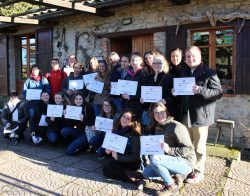

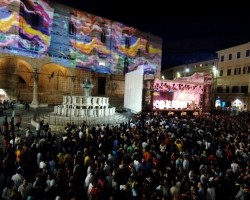 Once winners have been notified, we will give them two weeks to buy plane tickets to Italy; if a winner is unable to do so, their apartment space will go to the next participant on the waiting list, that will be set in chronological order. If you don’t win the apartments for this summer, we would still love to see you in Perugia!
Once winners have been notified, we will give them two weeks to buy plane tickets to Italy; if a winner is unable to do so, their apartment space will go to the next participant on the waiting list, that will be set in chronological order. If you don’t win the apartments for this summer, we would still love to see you in Perugia!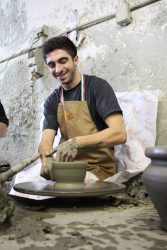 IBST 380 students create their own Deruta ceramics
IBST 380 students create their own Deruta ceramics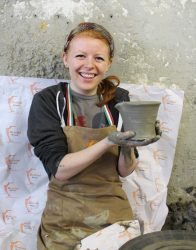 IBST 380 students create their own Deruta ceramics
IBST 380 students create their own Deruta ceramics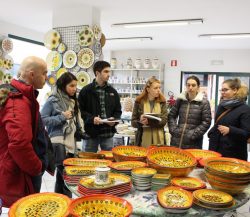

 CESP 351 students hosted a film screening to encourage the local community to become more aware of issues surrounding fair trade
CESP 351 students hosted a film screening to encourage the local community to become more aware of issues surrounding fair trade